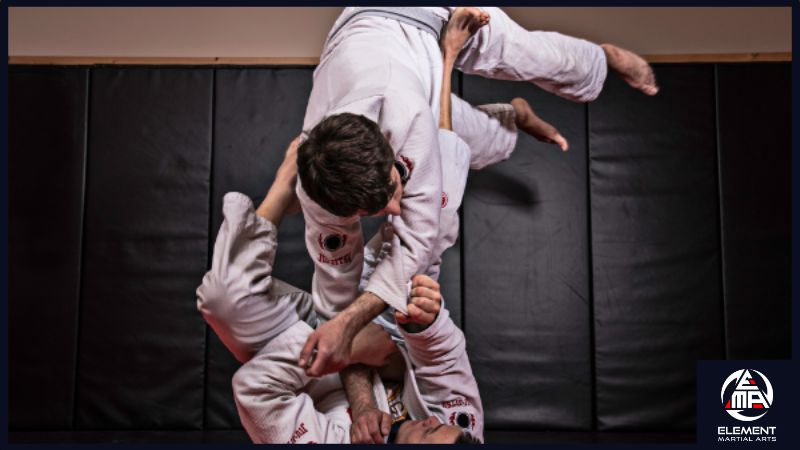Jiu-Jitsu for Self-Defense: Practical Techniques for Real-Life Situations

In an unpredictable world, the ability to defend oneself is a valuable skill. Jiu-Jitsu, a martial art known for its practicality and effectiveness, offers a comprehensive system for self-defense in real-life situations. Beyond the mats of a training dojo, Jiu-Jitsu equips individuals with practical techniques that can make the difference between safety and danger.
Jiu-Jitsu, a Brazilian martial art, is celebrated for its versatility and practicality in self-defense scenarios. This article will focus on the real-life applicability of Jiu-Jitsu techniques, providing a deeper understanding of how this martial art can be used effectively in a self-defense context. It's about more than just sport; it's about safeguarding yourself and those around you in unforeseen situations.
The Core Principles of Jiu-Jitsu for Self-Defense
Jiu-Jitsu offers a unique set of core principles that make it exceptionally effective in real-life self-defense scenarios. These principles include:
- Leverage and Technique Over Strength: Jiu-Jitsu teaches individuals how to use leverage, balance, and proper technique to overcome larger, stronger opponents. This is especially important in self-defense situations where brute force may not be an option.
- Control and Restraint: Jiu-Jitsu focuses on controlling an opponent, which is a critical skill in self-defense. The ability to subdue and restrain an aggressor without causing undue harm is an essential aspect of this martial art.
- Escapes and Survival: Jiu-Jitsu emphasizes the importance of escaping from dangerous situations. Techniques for escaping holds, pins, or chokes can be life-saving when confronted by an attacker.
Practical Techniques for Common Self-Defense Scenarios
Jiu-Jitsu equips individuals with practical techniques for a variety of common self-defense scenarios, including:
- Stand-Up Defense: Jiu-Jitsu teaches effective techniques to neutralize threats when standing, including escapes from grabs, headlocks, and strikes. Learning to maintain balance and create distance is crucial.
- Ground Defense: A significant portion of Jiu-Jitsu training takes place on the ground, where many altercations end up. Techniques for escaping pins, controlling opponents, and applying submissions can be used to immobilize and subdue an attacker.
- Multiple Attackers: Jiu-Jitsu's focus on positional control and leverage can help individuals manage situations involving multiple attackers. Techniques such as sweeps and takedowns can be used to even the odds.
The Importance of Realistic Training
Realistic training is essential for mastering Jiu-Jitsu for self-defense. Key aspects of realistic training include:
- Scenario-Based Drills: Practicing specific scenarios, such as escapes from holds or dealing with surprise attacks, helps individuals adapt their Jiu-Jitsu skills to real-life situations.
- Stress Inoculation: Training should incorporate stressors to mimic the heightened adrenaline and fear experienced in real confrontations. This type of training better prepares individuals for the psychological aspects of self-defense.
- Sparring and Pressure Testing: Regular sparring sessions and pressure testing against resisting opponents are essential to refine Jiu-Jitsu techniques for self-defense. It helps individuals apply their skills effectively under pressure.
Jiu-Jitsu is more than just a sport; it's a practical and effective system for self-defense in real-life situations. The core principles of leverage, control, and escapes make it a valuable tool for personal safety. It equips individuals with techniques for stand-up and ground defense, as well as dealing with multiple attackers. However, mastering Jiu-Jitsu for self-defense requires realistic training, including scenario-based drills, stress inoculation, and sparring.
In an unpredictable world, the ability to protect oneself and loved ones is a crucial skill. Jiu-Jitsu, with its practical techniques and realistic training, offers a path to personal safety. It's not about seeking confrontation but being prepared to handle it when it arises. Jiu-Jitsu for self-defense is about empowerment, confidence, and the assurance that you have the skills to protect yourself and those around you in unforeseen circumstances.
FAQ
Jiu-Jitsu training encompasses both physical and mental aspects. In addition to techniques, it teaches control, awareness, and the importance of staying calm under stress, making it a well-rounded approach to self-defense.
Yes, Jiu-Jitsu can be adapted for people of all ages and physical conditions. Instructors can modify techniques to suit individual needs, making it an inclusive self-defense option.
The time it takes to become proficient varies, but regular practice and consistent training can lead to effective self-defense skills in a matter of months to a few years.
If my mind can conceive it, my heart can believe it, then I can achieve it.
Contact our studio at 368-993-5668 today or get in touch with us. We look forward to speaking with you. (please note that the form below may take a few seconds to load. thanks for your patience!)

